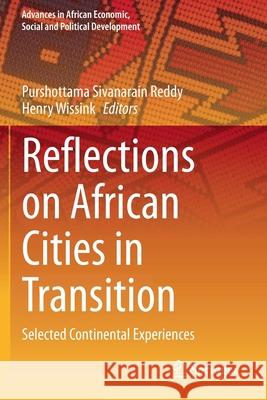Reflections on African Cities in Transition: Selected Continental Experiences » książka
topmenu
Reflections on African Cities in Transition: Selected Continental Experiences
ISBN-13: 9783030461171 / Angielski / Miękka / 2021 / 336 str.
Reflections on African Cities in Transition: Selected Continental Experiences
ISBN-13: 9783030461171 / Angielski / Miękka / 2021 / 336 str.
cena 402,53
(netto: 383,36 VAT: 5%)
Najniższa cena z 30 dni: 385,52
(netto: 383,36 VAT: 5%)
Najniższa cena z 30 dni: 385,52
Termin realizacji zamówienia:
ok. 16-18 dni roboczych.
ok. 16-18 dni roboczych.
Darmowa dostawa!
Kategorie:
Kategorie BISAC:
Wydawca:
Springer
Język:
Angielski
ISBN-13:
9783030461171
Rok wydania:
2021
Ilość stron:
336
Waga:
0.47 kg
Wymiary:
23.39 x 15.6 x 1.78
Oprawa:
Miękka
Wolumenów:
01
Dodatkowe informacje:
Wydanie ilustrowane











